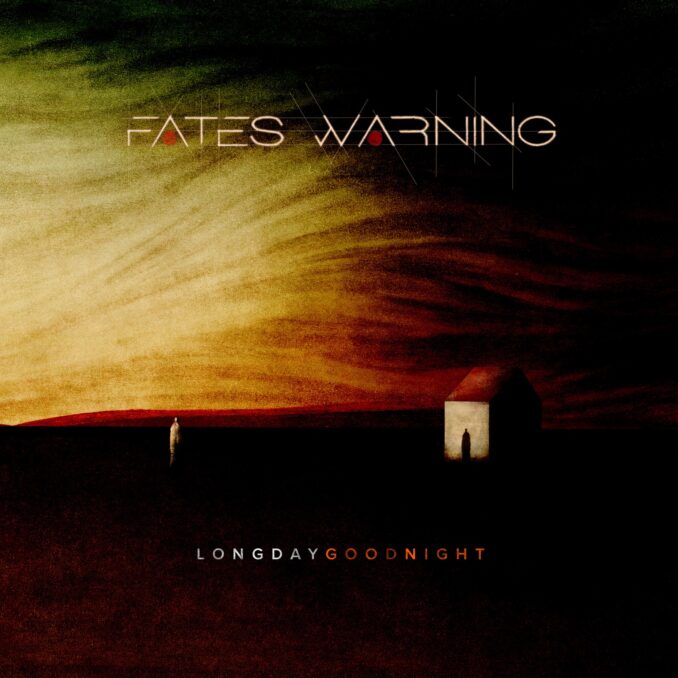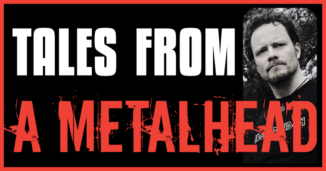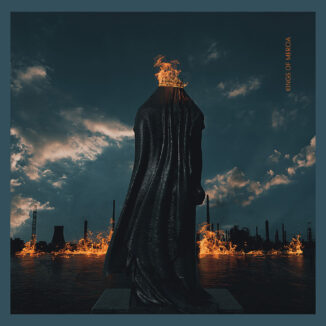
-
FATES WARNING - Long Day Good Night - 9.5/109.5/10
Summary
Metal Blade
Release date: November 6, 2020
User Review
( vote)Heavy Metal has been outsider art for much of it’s existence, and the vast majority of what falls under the billowing shroud of “Metal” remains art produced by and for outsiders. Discounting the worldwide ubiquity of a few bands like AC/DC. Metallica, and Guns N’ Roses, the various strains of Metal may inspire extreme loyalty but not always a giant fan base. Fates Warning traveled artistic byways fairly early on in their career that set them apart even among the rest of the outsiders practicing the craft of Metal, boldly exploring uncharted musical and emotional territory that no other Metal bands had set foot in before, and very few have successfully since.
The largest seismic shift happened not when original vocalist John Arch left Fates after the release of their third album, 1986’s thrilling Awaken The Guardian, nor did it occur for the Thrash-inflected follow up, No Exit. The first album to feature Ray Alder, No Exit features some of the fantasy themes evident in the first three albums, but combined the introspective instrumentation present there with more philosophical and personal lyrics. MTV Headbanger’s Ball mainstay “Silent Cries”, the ripping single from that album, combined a shredding guitar riff with Alder’s expansive range, painting a harrowing yet intimate portrait of a child rendered mute by being ignored and misunderstood.
The song serves as a precursor to one of the single biggest risks ever taken by a Metal band, especially a band recently switching vocalists and getting national airplay. Fates Warning completely changed their sound to be more Progressive on 1989’s Perfect Symmetry and the quantum leap in their songwriting and playing was enhanced by a shift in lyrical subject matter that set them apart from virtually every Metal band of the time, regardless of subgenre. Where the rest of the Metalscape was filled with songs about one or more of the following subjects–fantasy, horror, drinking, Satan, Armageddon, Reagan-era politics, girls girls girls, motorcycles, violence, science fiction, war, addiction, and the like, Fates wrote about being human. They wrote about anomie, loneliness, and the nigh impossible task of trying to form an authentic connection with another person.
With songs like “Nothing Left To Say” and “Life In Still Water” off follow-up album and career high watermark Parallels, Jim Matheos led Fates Warning away from the speculative topics of the bands’ first albums. Gone were the giants and witches, the time travelers and the macabre. Ghosts and apparitions still haunted the songs, but no longer were they lingering in dark medieval churchyards or in the hazy images at the center of a crystal ball. These ghost lurked in all of us; the ghosts of relationships, of youth, of ambitions lost and ambitions realized that failed to satisfy. And these ghost were far more terrifying than any moldering cemetery haunt. Matheos, and then increasingly, Alder, were writing lyrics where they were putting themselves and their experience into the mix–and the result was singularly brilliant.
The deeply held, authentically felt emotions, when matched with high-octane, adrenalized music sounded like nothing else, drawing on the band’s past but so in the present moment it transcended time. Fates Warning continued their explorations of the human heart for well on thirty years, and continue to do so on their newest release, 2020’s Long Day Good Night.
The release marks the band’s return to Metal Blade, who they parted ways with after 2004’s FWX, and one has to wonder if that reunion has inspired the band to stretch to new heights of creativity and excellence. Clocking in at seventy-two minutes in length, the thirteen songs on Long Day Good Night sparkle with the brightness and clarity typical of Fates, and also display a wide depth and breadth of innovation–is that a marimba on “When Snow Falls”??? And a full string section on the beginning of “Under The Sun”?
While most of the Fates catalog’s albums have a unified sonic feel to them connecting the songs, Long Day Good Night excites because the songs are so different. “The Destination Onward” opens with classic slow-build signature Fates Warning atmospherics and airy guitar notes; “Shuttered World” grabs listeners by the throat with an equally classic Fates Warning guitar spiral and thunder-drum whirlwind, not letting go until the final note.
There’s tracks here guaranteed to fire up the mosh pits. “Glass Houses” sits comfortably among quieter tunes like “Now Comes The Rain”. “The Way Home” begins with sugar and brings in the salt, moving from the quiet opening and chorus into a powerful instrumental workout halfway through. There’s the heavy assault riff and chorus of “Liar”, the sprawling eleven-minute Proggy whirl of the “The Longest Shadow Of The Day”. “Begin Again” proceeds with a Beck-ish, bass-heavy bounce before cranking up the guitars for the chorus.
The surfeit of sounds on Long Day Good Night show a veteran band at the height of their creative powers. Alder is in top form; there are few vocalists in Metal who have had similarly lengthy careers whose voices actually improve with age, but both his ability to sustain long notes and his overall range appear to have done just that. Drummer Bobby Jarzombek and bassist Joey Vera (who also provides the bottom for the new Armored Saint album Punching The Sky, also released in November) have perhaps a better rhythmic telepathy than ever before, and Jim Matheos is, simply, one of the best Progressive Metal songwriters and guitarists working. Similar to the last few albums, he provides the majority of the guitar although touring guitarist Mike Abdow helps on a few tracks.
One hopes that the “Good Night” in the album’s title, and naming the last song on the album “The Last Song” aren’t signs Fates Warning are packing it in after Long Day Good Night, but if they are they have gifted the musical community with one hell of a swan song.




Be the first to comment